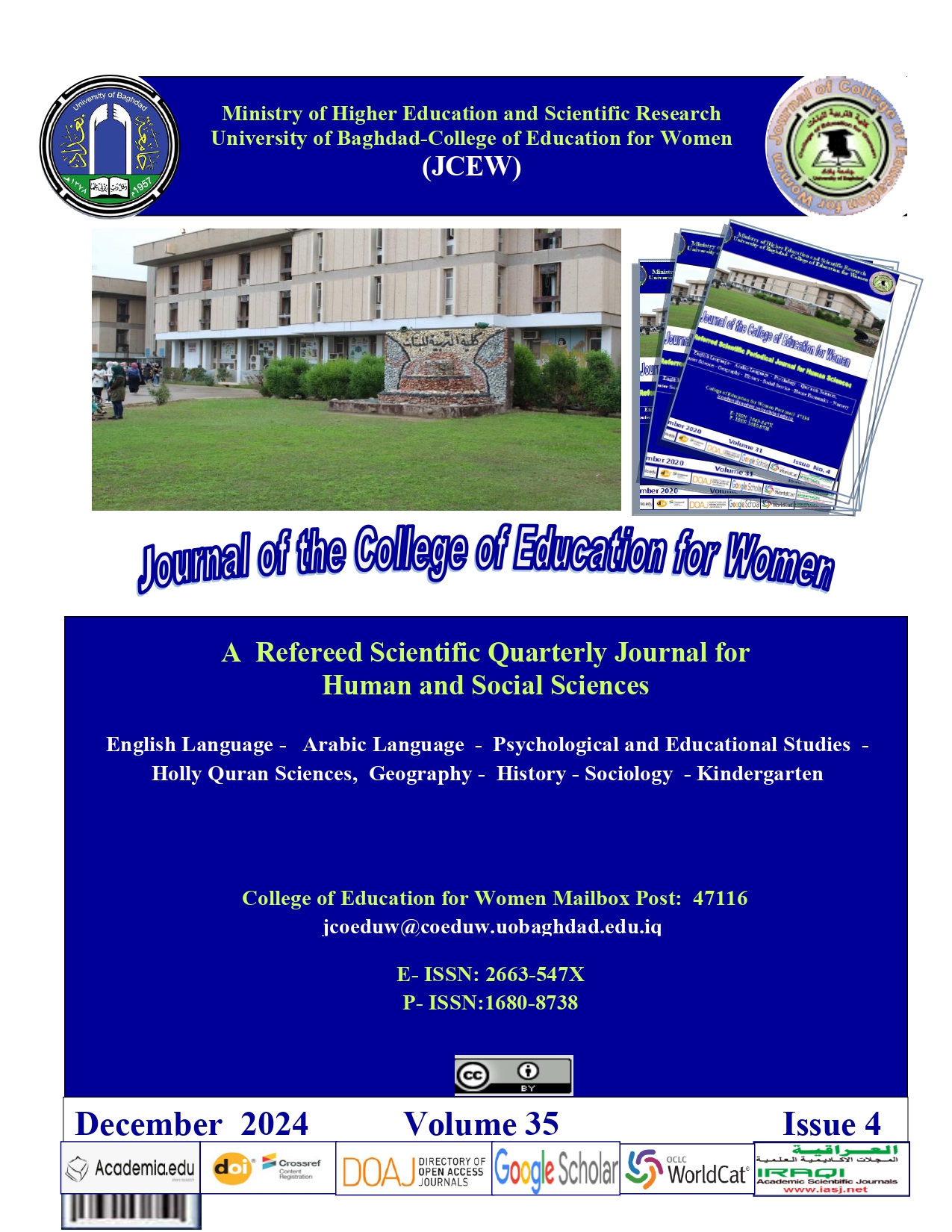The Significance of The Mesopotamian Divinities in Rasha Fadhil’s Ishtar in Baghdad
DOI:
https://doi.org/10.36231/coedw.v35i4.1770Keywords:
abuse, immortality, salvation, terrorism, post-traumaAbstract
The current paper examines Rasha Fadhil’s Ishtar in Baghdad (2003). It highlights many controversial social and political topics. Fadhil’s play can be considered as personal as well as cultural trauma. It pinpoints certain harsh realities associated with the U.S. military and their occupation of Iraq. Fadhil’s play originates a new voice for powerless Iraqi people. The play is examined in the light of some literary trauma studies. Cathy Caruth’s theory of empathy with the traumatized characters emotional struggles is the first theory; while the second theory is Dominic La Capra’s working through method of healing repeated experience of traumatic events. This research contributes to a deeper understanding of the psychological and emotional aftermath the U.S. military and their occupation of Iraq. The paper concludes that Fadhil’s characters do not fear death; it is an act of salvation to them. It is the uttermost baptizer with all worldly filth is going to be removed and purified. Death in the Fadhil’s play is not the end, but it refers to a promise for a new beginning, for regeneration and revival.
Downloads
Published
Issue
Section
License
![]()
All articles published in Journal of College of Education for Women are licensed under a Creative Commons Attribution 4.0 International License.











